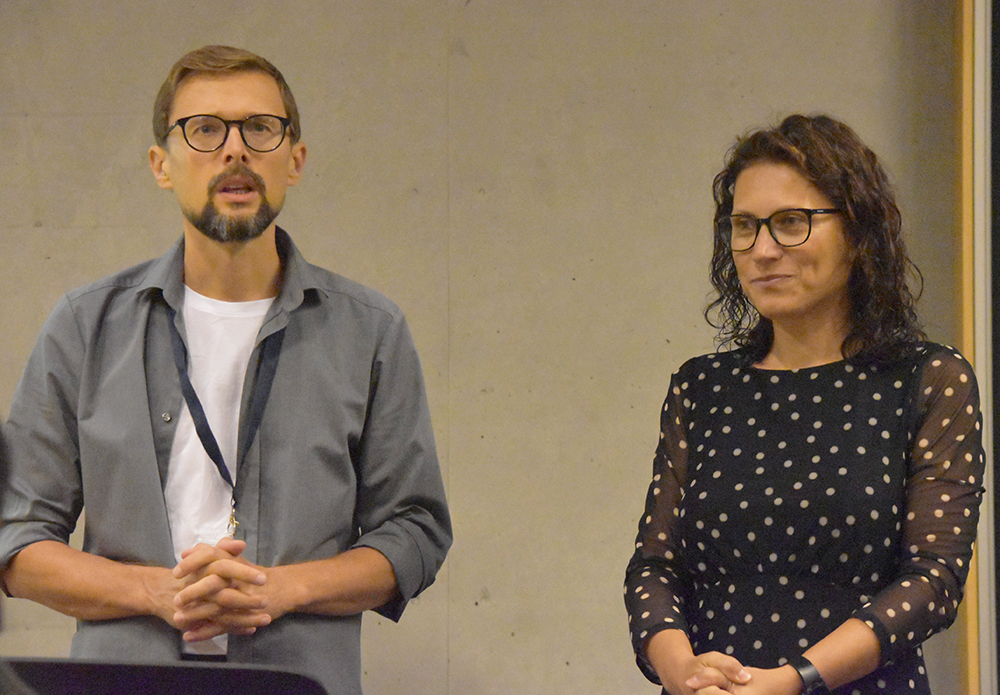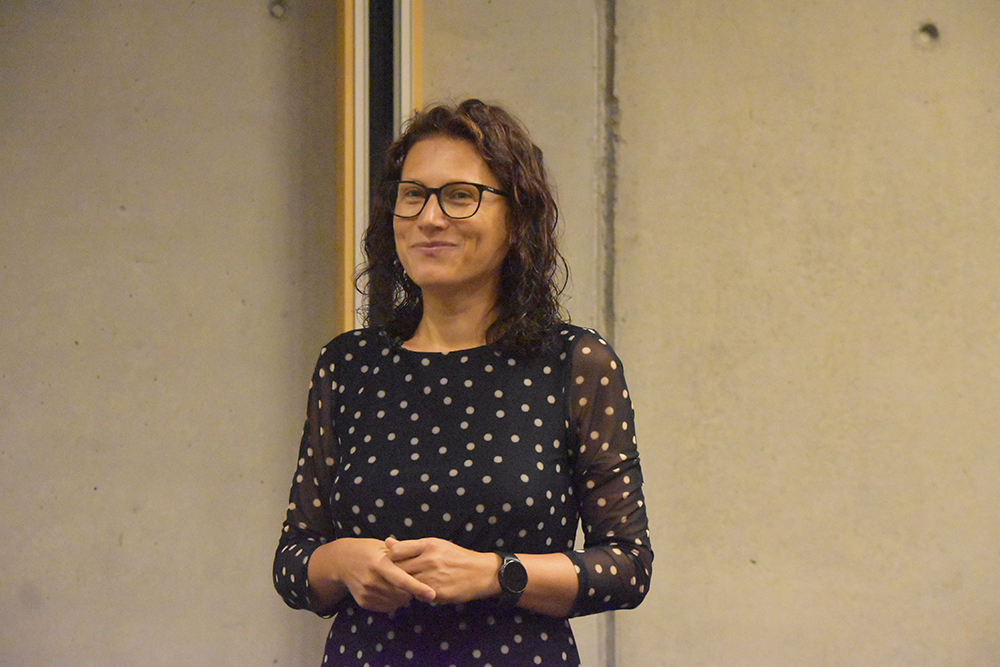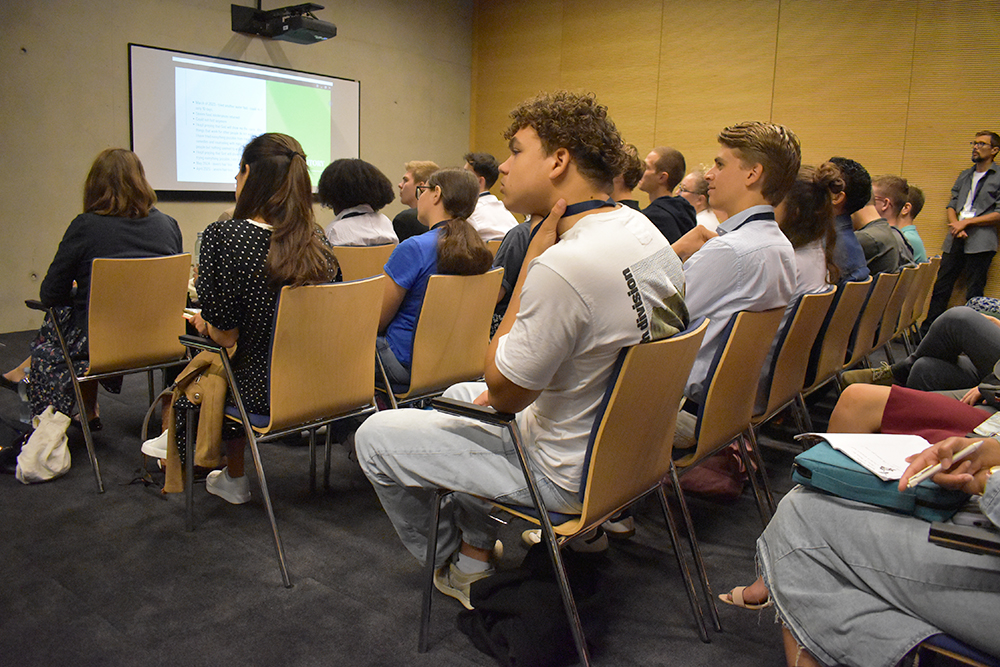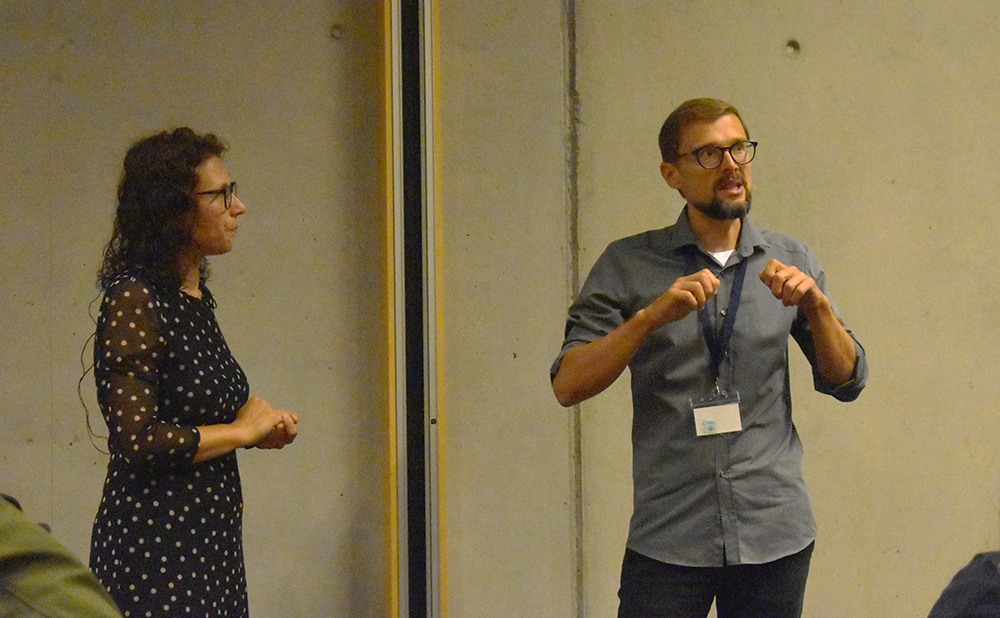Fighting Chronic Disease Is Challenging but Can Be Rewarding, Presenter Says
Raluca Ril shares a first-person account of her struggles and hard-won achievements.
August 18, 2025 | Marcos Paseggi, Adventist Review
A couple who spends their working life helping others shared their personal struggles with chronic disease. At a workshop during the 2025 Generation. Youth. Christ. (GYC) Europe Convention in Katowice, Poland, Raluca and Roman Ril discussed how to approach chronic diseases in a way that helps fight back and find a way to wholistic well-being.
In their July 31 presentation the Rils, who specialize in conflict resolution, emotional healing, and physical restoration, discussed the hidden role of a dysregulated nervous system in chronic illness and explored how healing of mind and heart can lead to physical recovery.

In a presentation at the 2025 Generation. Youth. Christ. (GYC) Europe Convention in Katowice, Poland, Roman and Raluca Ril discussed how to approach chronic diseases in a way that helps fight back and find a way to wholistic well-being. [Photo: Marcos Paseggi, Adventist Review]
Raluca Ril’s personal battle with chronic illness ignited her passion for helping those who have tried everything yet still struggle to heal, she revealed. For five years, Ril shared, she has struggled with debilitating health challenges, which profoundly shaped her perspective, equipping her to bring hope to others.
After five years of trying various treatments with no major breakthroughs, Ril asked herself, “What if the missing piece isn’t another treatment, but a deeper approach—one that connects the mind, body, and heart?” Accordingly, she shared her story in the hopes it can also help others who are struggling with chronic diseases and, in some cases, have lost hope of ever getting better.
A Complex Diagnosis
An initial diagnosis of Lyme disease years ago turned more complicated for Ril when she began to experience all kinds of debilitating symptoms—dizziness, pain in her joints, chronic constipation, and a dozen others. Treatments—natural or otherwise—didn’t seem to provide the relief she was looking for. Even after trying various treatments, she found eating very challenging. “I could tolerate tofu, chickpeas, and quinoa,” Ril shared, “but I could not tolerate fruit, because it was very painful.”
Ril visited all kinds of specialists, but no one seemed to know how to help her. She would experience slight improvements, only to fall back to old patterns and symptoms a few days later.

“Besides the intellectual, I believe God wants to have an emotional connection with us, not connecting with us only through our brains but also through our hearts,” Raluca Ril said. [Photo: Marcos Paseggi, Adventist Review]
Reflecting and Learning
One of the things that helped her to reflect on her health, Ril reported, was a statement from Ellen G. White. One day, Ril read, “Great wisdom is needed . . . in order to cure the body through the mind. But few realize the power that the mind has over the body. A great deal of the sickness which afflicts humanity has its origin in the mind and can only be cured by restoring the mind to health.”*
From then on, Ril devoted herself to understanding better how her mind worked, and which elements were affecting the ability of her body to fight disease and foster well-being.
Ril also began to learn more about the human body, including the role of the vagus nerve. That nerve, she explained, is essential for regulating involuntary functions inside our bodies. The vagus nerve carries sensory and motor fibers and serves as a major pathway that connects the brain to various organs, including the heart, lungs, and digestive tract. As such, it helps regulate essential involuntary functions such as heart rate, breathing, and digestion. According to experts, by controlling these processes, the vagus nerve helps to calm the body after stress, lower heart rate, improve digestion, and maintain homeostasis. “It helps to regulate our nervous system,” she explained.
According to Ril, it is possible to suspect whether a person suffers from a dysregulated nervous system. Getting easily startled or scared, for instance, can be a sign of it, she shared. Another sign is weak gag reflex or a too strong gag reflex, she added. Some people feel like vomiting every time they need to brush. Feeling easily overwhelmed and experiencing anxiety and depression can also be signs of a dysregulated nervous system, as it is suffering from sound, smell, or other sensitivities.

A group of Generation. Youth. Christ. (GYC) Europe attendees listen to Raluca Ril’s presentation on facing and fighting against chronic disease in Katowice, Poland, July 31. [Photo: Marcos Paseggi, Adventist Review]
A Slow Turnaround
In Ril’s case she opted for a combined approach, which included not only minding what she ate but also other alternative treatments. The family also explored environmental factors and discovered that the house they were living in at the time had a mold problem.
In connection with her situation, she found that working on her nervous system was “a must in cases of mold toxicity and Lyme disease,” Ril said. So she devoted herself to learning more about neurotoxicity. “Little by little my health got better,” she shared. “I also decided that I would be thankful for whatever came my way and keep trusting God.”
Ril’s experience also changed her spiritual outlook, she revealed. “I understood that whatever I was going through, Jesus had already carried it on the cross—not only my sin but also my sickness,” she said. “And even before I got better, I felt happy and thankful for what the Lord had done.”
Not all her health problems are definitely solved, Ril conceded. But she has found in retelling her experience that she can connect with others who are also going through pain and sickness. “If you are going through pain right now . . . God can transform it into something beautiful; He can transform your pain into the best tool you have,” she said.

The Rils shared their experience living with Raluca’s chronic health challenges, and what they did to improve their life despite their challenges. [Photo: Marcos Paseggi, Adventist Review]
Ril also suggested looking for ways of activating the vagus nerve. One simple way of doing it is by singing, she shared. “Singing helps with your mood, with your anxiety,” she said. Other simple activities, such as gagging and gurgling, can also help. “Those activities cause vibrations that activate the vagus nerve,” she said. Ril also mentioned being out and walking in nature, including hearing the birds singing, doing breathing exercises, or even taking a cold shower.
At the same time, Ril highlighted the importance of a nervous system rewiring, or looking for ways of forming new neural pathways in life. She suggested that in that sense it’s important to recognize our emotional wounds and what might keep us in a state of fight or flight. There are also some surveys that people can fill in to find out what their false beliefs are that might keep them sick, she explained.
The solution to that is finding safety not only in God but connecting with other people, Ril emphasized. “I believe that God wants us to use other people so that we can learn which is a safe place to be,” she said. “And besides the intellectual, I believe God wants to have an emotional connection with us, not connecting with us only through our brains but also through our hearts.”
*Healthful Living (Battle Creek, Mich.: Medical Missionary Board, 1897), p. 231.